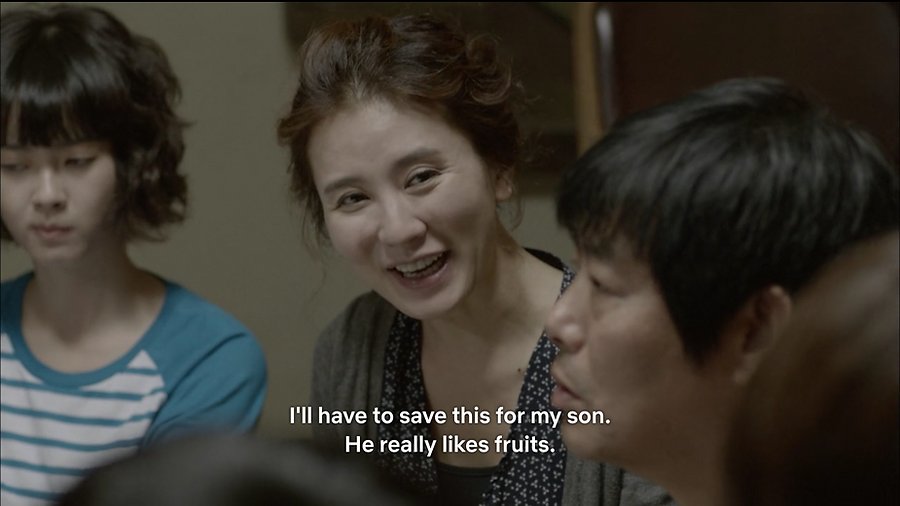
Episode 3: A New Generation's Love
By Phoebe Mak
The episode beings with Na-jung and Trash’s debate on Trash's girlfriend and them recording for Beep Beep machine’s voicemail. The kids at Shinchon boarding house went to MT (Korean style retreat) where they played drinking games until everyone passed out. At the same time, Chilbong and Binggrae were on the way to Chilbong mother’s remarriage in Dong-il’s car. They didn’t make it to the wedding because of Dong-il's bathroom emergency and poor sense of direction, but Chilbong got to hear his mother’s heartfelt message for him.
The episode ends with Trash’s breakup with his girlfriend and his care for Na-jung. Love is in the air.
One of the main themes in this drama is family, or friends that are as close as family members. The seven teenagers from seven parts of Korea were able to bond with each other and form the boarding house ‘family’. We have touched on how false kinship terms are used to foster closeness in class, it is interesting to see how this is demonstrated in the drama. In this article, I will discuss how false kinship terms contributed to the togetherness of the boarding house family and expand on its importance to Korean society by analyzing the use of false kinship terms in the drama.
Korean kinship terms are used to address paternal, maternal and affinal relatives (King 2006, 101). But as learnt in class, sometimes these terms are extended metaphorically to be used on non-relatives, and they are called “false kinship terms”. The most often used ones include “mom”, “oppa”, “hyung” and “aunt”. When Chilbong, the only ‘city kid’ asked why the kids at the boarding house all call Na-jung's mother ‘mom’, Haetae replied that they call their friend's mother ‘Mom’.
Chilbong was intrigued by the idea and awkwardly calls Il-hwa ‘mom’. Chilbong's parents were divorced and he had a distant relationship with his mom whereas Il-hwa treated all the kids in the boarding house like her children. Being able to call Il-hwa seems to make up for the lack of love care that Chilbong has received.
Now you may ask, if you already know that person is not your real mother, how much difference would a kinship term make? In fact, word choice can really shape one’s perception of another person and the relationship between. In the first few episodes of the drama, Dong-il and Il-hwa referred to Trash as their “son” a lot and Na-jung always called Trash “oppa” (which means older brother), hence their friends and audiences alike thought these two were real siblings. Later in the drama, Trash also confessed that he felt awkward to ask Na-jung out because she is like her real little sister.
Korea is deeply influenced by Confucian ideologies, as mentioned in the first class by Dr. Saeji. Korea is a collective society where close family ties are highly valued and kids are expected to perform filial piety. By calling their friend’s mother ‘mom’, one will eventually be respectful to them and treat them as their own mothers. Another example would be calling a waitress at a restaurant 'emo' (which means aunt) or 'eonni' (which means elder sister). This way of addressing them gives the feeling of them being someone who takes care of you rather than someone who serves you.
(471 words)
Bibliography:
King, Ross. "Korean Kinship Terminology." In Korean Language in Culture And Society, edited by Homin Sohn, 101-115. Honolulu:
University of Hawai‘i Press, 2006.
I would like to know your opinions on kinship terms as well. Below are some discussion questions.
1. In Western societies, most people call their parents by their first name. In your opinion, does the use of kinship terms in Korean society nurture closeness or adds distance because of the formality?
2. Some kpop fans call their idols "oppa" even though the idols don't even know them. Should the use of the kinship term "oppa" be considered rude in that situation?




